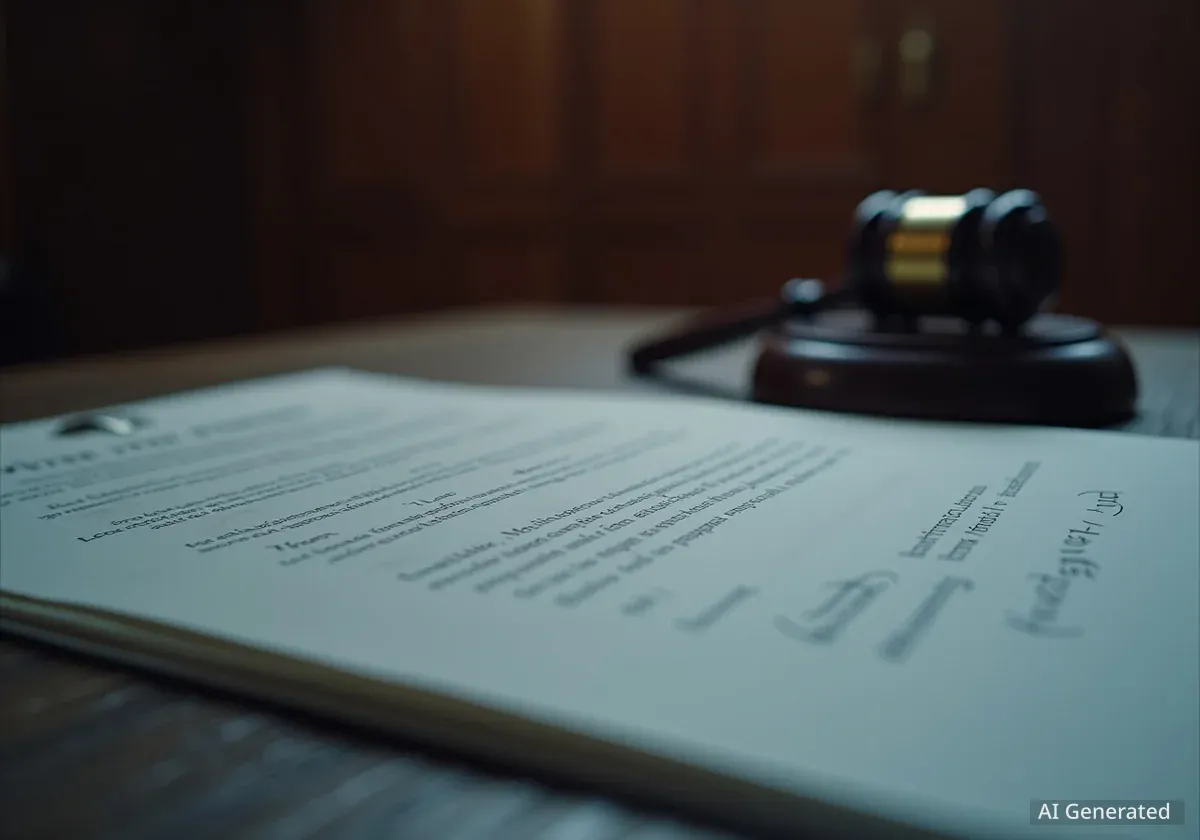A Hennepin County judge has issued a temporary restraining order against a Minneapolis real estate developer, prohibiting him from allowing homeless encampments on any of his properties within the city. The ruling is the latest development in a contentious legal battle between developer Hamoudi Sabri and the City of Minneapolis, which escalated after a fatal shooting occurred at a large encampment on one of Sabri's lots.
The court's decision temporarily halts Sabri's practice of permitting unhoused individuals to reside on his land, a situation that had already resulted in over $20,000 in fines and a lawsuit from the city. The order will remain in effect pending further court proceedings.
Key Takeaways
- A judge has temporarily blocked developer Hamoudi Sabri from allowing homeless encampments on his Minneapolis properties.
- The city sued Sabri after issuing more than $20,000 in fines related to public health concerns at an encampment on his Lake Street property.
- The legal action followed a shooting at the encampment that left one woman dead and six others injured.
- The underlying lawsuit, where the city seeks to recover cleanup costs from Sabri, is still ongoing.
Legal Action Follows Public Safety Crisis
The dispute centers on a property owned by Hamoudi Sabri near the intersection of 28th Avenue and East Lake Street in south Minneapolis. Beginning in July, an encampment began to form on the vacant lot, eventually growing to house an estimated 60 or more people.
The City of Minneapolis responded by issuing numerous citations to Sabri for public health violations. According to city officials, these included the improper disposal of solid waste and the presence of used drug needles on the property. The fines accumulated to more than $20,000.
The situation took a tragic turn just two days before the first scheduled court hearing in the city's case against the developer. A late-night shooting erupted at the encampment, resulting in multiple casualties. Six individuals were injured, and 30-year-old Jacinda Oakgrove died from her injuries.
Encampment Cleared After Violence
In the immediate aftermath of the shooting, city crews moved in to clear the encampment. The area was cordoned off, and heavy equipment was brought in to remove tents, debris, and personal items. Some former residents of the encampment reported that they were not given adequate time to retrieve their belongings before the cleanup operation began.
Initially, Sabri indicated he would permit people to return to the property. However, he later agreed to temporarily prevent re-occupation while seeking a resolution with the city. When those discussions failed to produce an agreement, Judge Thomas Conley issued the temporary restraining order on Wednesday.
Background of the Dispute
The conflict between Sabri and the city highlights a broader, ongoing challenge in Minneapolis and other major cities regarding how to address homelessness. While Sabri framed his actions as a humanitarian effort to provide space for those with nowhere else to go, the city maintained that the unregulated encampment posed a significant public health and safety risk, particularly with a charter school located next door.
Developer and City Officials Respond to Ruling
Following the judge's order, both Hamoudi Sabri and city officials released statements outlining their positions. Sabri expressed his intent to continue his legal fight, framing it as a push for accountability from the city.
"That strategy must also hold the city accountable for its profound dereliction of duty and care in public health and safety," Sabri wrote. "Frey’s suing me for welcoming people he only kicks around. I never said that was the solution — only a start, expecting collaboration like we’ve seen work before.”
Conversely, Minneapolis Mayor Jacob Frey described the temporary restraining order as a necessary step to ensure public safety. He emphasized the city's stance that such encampments are not a viable solution to homelessness.
"Encampments are not safe — not for residents, neighbors, or surrounding businesses. Once services and shelter are offered, encampments must be closed," Frey stated. "This ruling allows us to do exactly that and move people toward safer, more stable housing.”
Statistics on Homelessness in Minnesota
According to the latest point-in-time count from Wilder Research, on any given night in Minnesota, approximately 8,000 people are experiencing homelessness. This figure includes individuals in shelters as well as those living in unsheltered conditions like encampments.
A Divided City Council on Legal Strategy
The decision to sue a private property owner over the issue of homelessness was not unanimously supported at City Hall. The Minneapolis City Council voted to authorize the lawsuit against Sabri, but the measure passed by a narrow 6-4 margin, revealing a significant division among council members on how to best address the crisis.
Some members who voted against the litigation argued that legal action was a misuse of city resources. Council member Jason Chavez suggested an alternative path focused on direct support and services.
“Instead of wasting time and energy into a lawsuit, we can instead move people into a navigation center, move people into a location that is more safe and secure, not only for the folks living at the encampment, but the neighbors in the area,” Chavez said before the vote.
Even some who supported the lawsuit expressed reservations about the city's overall approach. Council member Jamal Osman, who ultimately voted in favor, pointed out what he saw as inconsistencies in the city's policies. He noted that the city had previously refused to provide portable bathrooms for encampments on public land, yet was citing Sabri for the lack of such facilities on his private property.
What Happens Next
The temporary restraining order is a preliminary measure and not the final resolution of the case. It will remain in place “until further order of the court,” preventing Sabri from allowing new encampments while the legal process unfolds.
The city's underlying lawsuit against the developer continues. In that suit, Minneapolis is seeking to compel Sabri to pay for all costs incurred by the city for clearing the site and addressing the public health issues. The case represents a critical test of a city's authority to regulate the use of private property when it intersects with the public crises of homelessness and safety.





